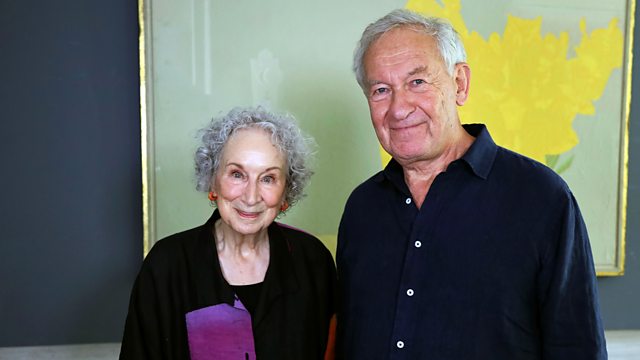
Margaret Atwood
Simon Schama meets renowned Canadian author Margaret Atwood to discuss how art and writing can play a crucial role in solving some of the world’s most pressing issues.
Canadian writer Margaret Atwood is one of the world’s most renowned and prolific writers of fiction, poetry and essays. She is best known for a series of darkly visionary novels - The Handmaid’s Tale, The Robber Bride, The Blind Assassin, and The MaddAddam Trilogy - which tunnel into the darkest possibilities of what humans can do.
Simon meets Margaret in Toronto at a time when the rights of women and the fate of the planet, ever-present concerns in her work, are at the forefront of many of our minds. Atwood gives her take on the seismic ruling of the United States Supreme Court to overturn Roe vs Wade, and the consequences it will have on women’s rights in America.
She reflects on how, in her view, the ruling was a long time coming, with the rise over decades of the evangelical Christian right wing, the very same movement that inspired her to write her iconic novel The Handmaid’s Tale, a book that has taken on even more relevance in our fractured times. Atwood explains the inspiration behind her most famous novel, and how her rule when writing was ‘I will not just make stuff up. So, everything I put into it had to have a precedent somewhere in time or space on this planet’.
Atwood goes on to explain her unconventional childhood, and how it has inspired her cautionary tales about the state of mankind and the planet. She grew up surrounded by wilderness and nature in the vast Canadian forest and learned much from her parents – both scientists – about the responsibility of humans to care for the planet and to apply a scientific rigour to her research and writing.
Simon and Margaret also talk about their shared admiration for writer Rachel Carson, who played a pivotal role in stirring public consciousness about our fragile relationship with the earth, and how we need to remember her voice now more than ever. For Atwood, Carson’s work is an example of the power of great writing. By combining scientific accuracy with poetic prose, she captured readers’ imaginations and helped kick-start the modern environmental movement. For Atwood, even with all the darkness and desperation in the world, Carson is a reminder that, as long as we have great art, there is always hope.
Last on
More episodes
Previous
Next
You are at the last episode
Credits
| Role | Contributor |
|---|---|
| Presenter | Simon Schama |
| Featured Artist | Margaret Atwood |
| Executive Producer | Nicolas Kent |
| Executive Producer | Charlotte Sacher |
| Director | Hugo Macgregor |
Broadcast
- Sun 11 Dec 2022 23:00
